Family Recovery
Healing is a journey.
Every journey has a story.
This is ours.

About Us
From Chaos to Healing
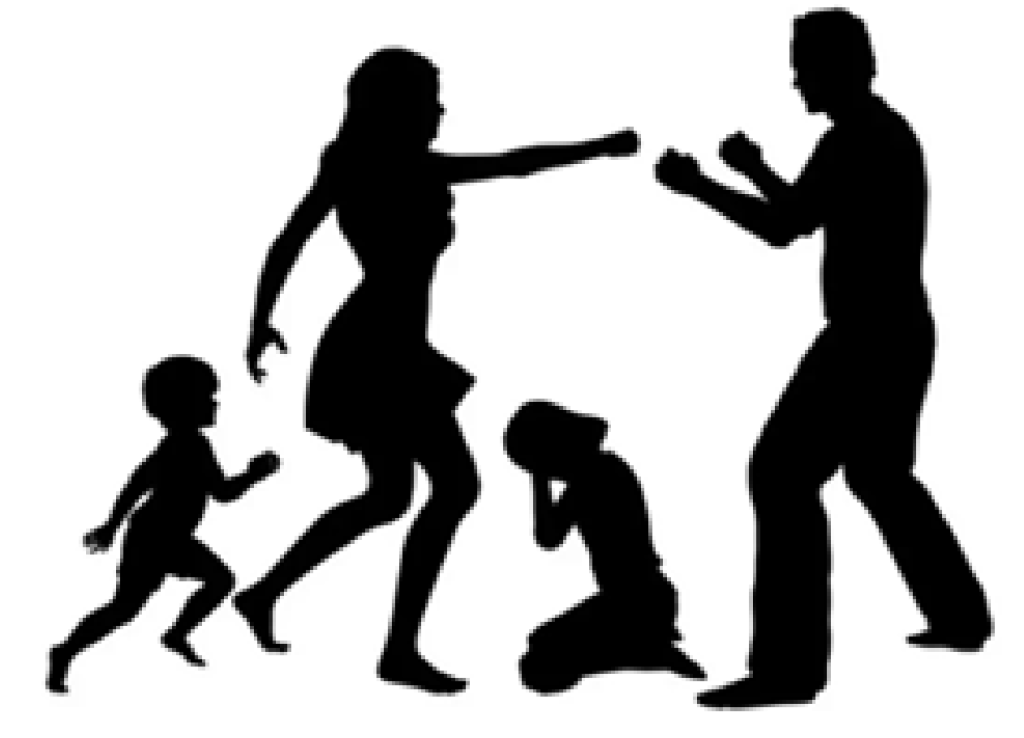
Our Dysfunction
I’m a licensed professional counselor and a recovering codependent—often referred to as a “love addict.” I’m also the wife of an alcoholic pilot in long-term recovery. But alcohol wasn’t the only threat to our marriage. Rage and deep enmeshment with his family of origin nearly tore us apart. For years, we both tried to fix the surface issues without addressing the real problem: trauma. His addiction and anger were symptoms, just as my codependency was. We each had wounds that shaped the way we coped with pain, and these unhealed wounds fueled a cycle of dysfunction. It wasn’t until we were both forced to confront the deeper roots of our struggles that true healing began. Our story is one of unraveling painful patterns to build something new.
Our Recovery
My husband, John, is a gentle, loving, and dependable man—someone I deeply respect. But for over a decade, I lost him to trauma, addiction, rage, and family enmeshment. Recovery didn’t just bring him back; it brought us both back to life. His journey required breaking free from addiction and facing his pain, while mine meant surrendering my illusion of control and untangling my codependency. We each had to do our own work, supported by our respective recovery programs. I’m forever grateful for his willingness to let me share his part of our story and for his patience as I learned to let go. Today, our marriage is no longer built on fear, control, or dysfunction but on love, trust, and mutual growth. Family recovery changed everything.
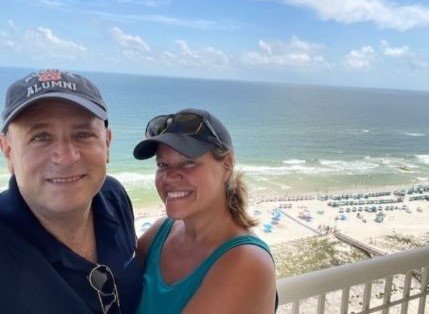

Our Faith
Our faith is a cornerstone of our recovery, but we also respect the beliefs of others. We have no desire to change, challenge, or impose our spiritual views on anyone. However, we do believe in the 12-step principle that true recovery requires reliance on a power greater than ourselves. That power can’t be another person, self-will, or anything temporary—it must be something sovereign and unshakable. For us, that Higher Power is God, and Jesus is our personal Savior. Healing began for us when God orchestrated an experience that shattered my denial—I found a dead man on the side of the road. That experience triggered unresolved childhood trauma I had long ignored. Facing it set us on a two-year journey that ultimately led John to his own healing. In his therapeutic inner-child work, Jesus showed up and restored his innocence. Our story isn’t just about recovery—it’s about redemption.
Our Legacy
Breaking generational patterns of dysfunction isn’t easy. In our case, it meant painful division from John’s family, who were unwilling to challenge long-held beliefs about what “healthy” relationships should look like. But for us, the cost was worth it. We refused to pass down the same toxic patterns we once accepted. Today, our children see relationships differently. They don’t tolerate manipulative game-playing, dishonesty, or emotional suppression. They openly express their thoughts, needs, and boundaries—expecting the same honesty in return. Watching them choose authenticity over appeasement is evidence that our pain wasn’t wasted. Our hope and prayer is that they never settle for anything less than true, healthy love. That is our legacy: future generations of families rooted in honesty, respect, and healthy love.
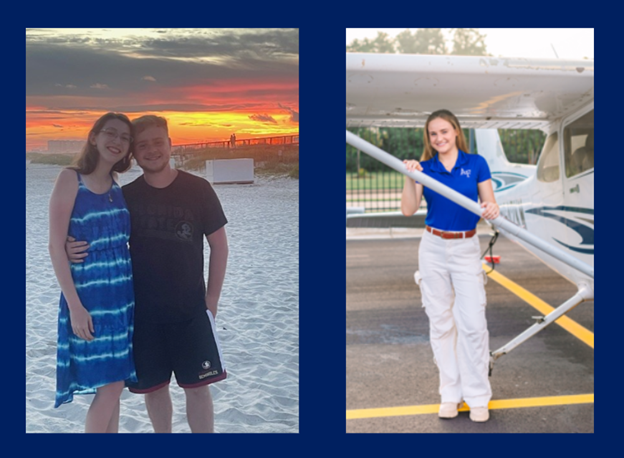
About Recovery
Lessons Learned
Sobriety Isn’t Enough
One of the biggest lessons I learned on our healing journey is that childhood experiences matter. I created a timeline of our story to illustrate why healing childhood trauma is essential. Sobriety might save a career or prevent some consequences of addiction, but without addressing the underlying wounds, trauma will continue to manifest in ways that can still destroy a marriage and a family.
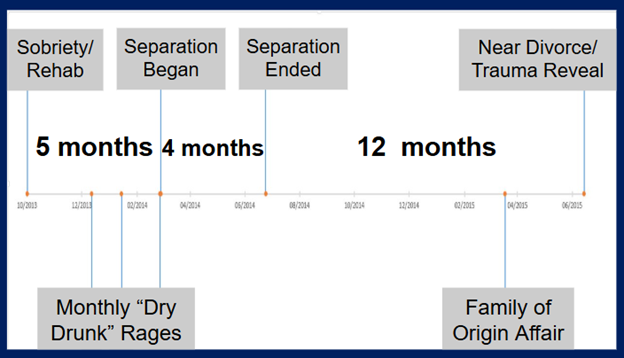
- John’s drinking was a symptom. We separated five months after he got sober because the real issue triggering his addiction was still hidden and manifesting as "dry drunk" rages.
- Rage was a symptom. We reunited four months after he learned to manage his anger, but the anger itself remained because its root cause was still unaddressed.
- Family enmeshment was a symptom. Divorce seemed inevitable until the true source of his shame and guilt was finally uncovered.
It took 21 months after sobriety—and 12 months after our separation ended—for us to finally identify the trauma fueling John’s addiction, rage, and enmeshment with his family of origin. In total, it was a two-year journey from sobriety to true healing. Sobriety saved his career, but it wasn’t enough to save our marriage or improve his quality of life. In hindsight, my own recovery may have softened his rock bottom and spared him some of addiction’s worst consequences. But recovery isn’t about preventing pain—it’s about confronting the truth that pain has always been there.
Dysfunction is a Family Disease
Addiction isn’t just a personal struggle—it’s a family disease. It’s a disease of distorted thinking that affects everyone, not just the alcoholic. John’s addiction and my codependency were opposite sides of the same dysfunctional coin. While there were some similarities in our dysfunction, there were also key differences.
- We were both in denial about the severity of our own problem. But my rock bottom was higher than his—I wasn’t willing to endure the same level of suffering he was. This meant I was willing to begin the process of change and healing much sooner than John
- We were both codependent, but our obsessions were different. John obsessed over alcohol and believed he could control his drinking. I obsessed over John and believed I could control him. Alcohol was his addiction, and he was mine.
- We both experienced trauma, but in different forms. His was acute sexual abuse—overt “T” trauma that, once identified, could be directly treated. Mine was chronic verbal abuse and emotional neglect—covert “t” trauma that was easier to dismiss, even after acknowledging it.
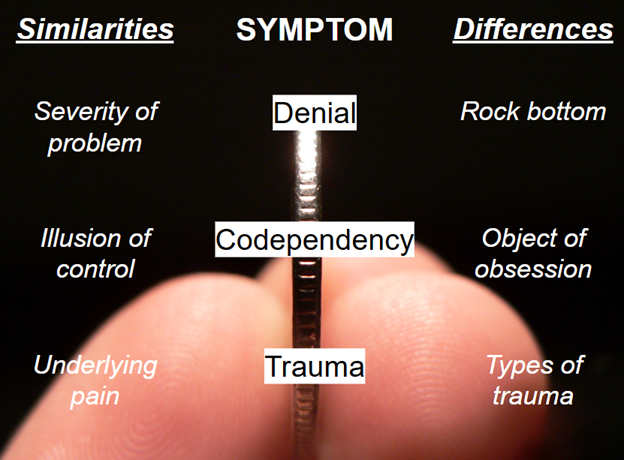
Addiction and codependency are two sides of the same dysfunctional coin—both driven by pain, both demanding recovery. Healing wasn’t just about John getting sober. It was about both of us breaking free from the unconscious patterns that had controlled us for years.
Healing Requires Family Recovery
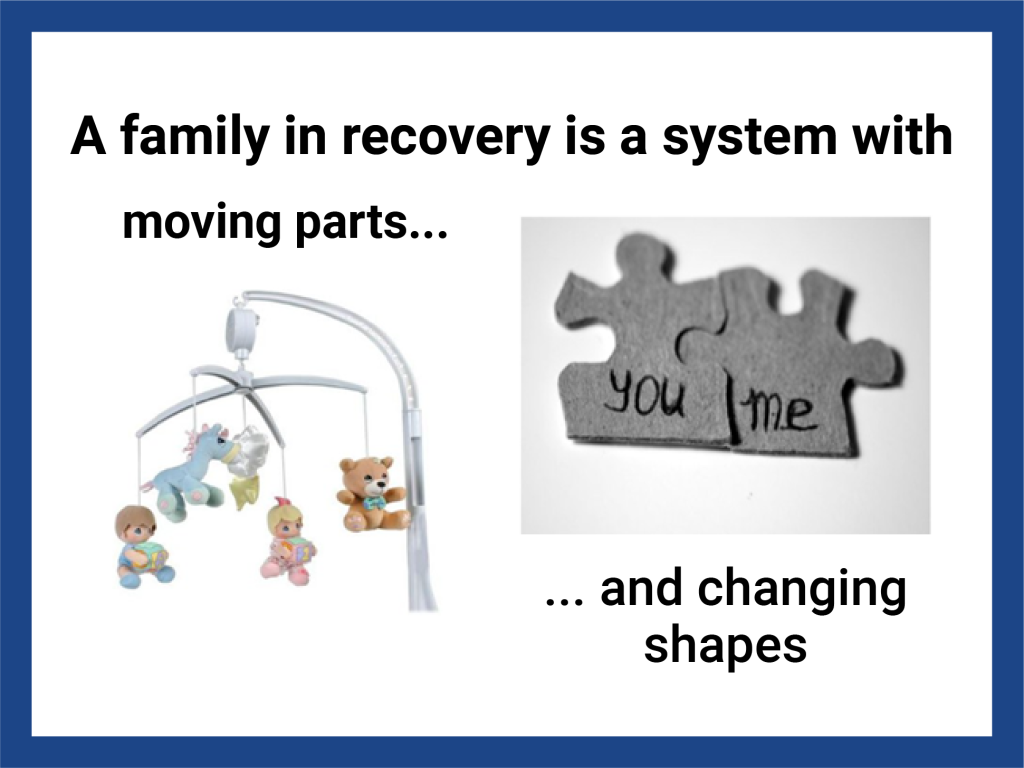
Because addiction is a family disease, recovery must also involve the entire family. But that doesn’t mean it’s easy. Relationships function like a dance—a constant series of actions and reactions. When one person changes the dance, the entire system shifts. Some will adjust, while others will resist. A family system is like a crib mobile, with each piece connected and dependent on the others for balance in the family system. When one piece moves, the entire structure wobbles, forcing everything else to shift. Unfortunately, most families operate more like a puzzle—with rigid pieces unwilling or unable to change their shape to fit into a healthier dynamic. In any family where even one person chooses recovery, the others must decide if and how they will adapt. If everyone is willing to shift, a healthy balance can be achieved. If not, painful separations may be necessary. It is possible to achieve and maintain balance and fit together beautifully if all the pieces are willing to adjust their position and adjust their shape.
